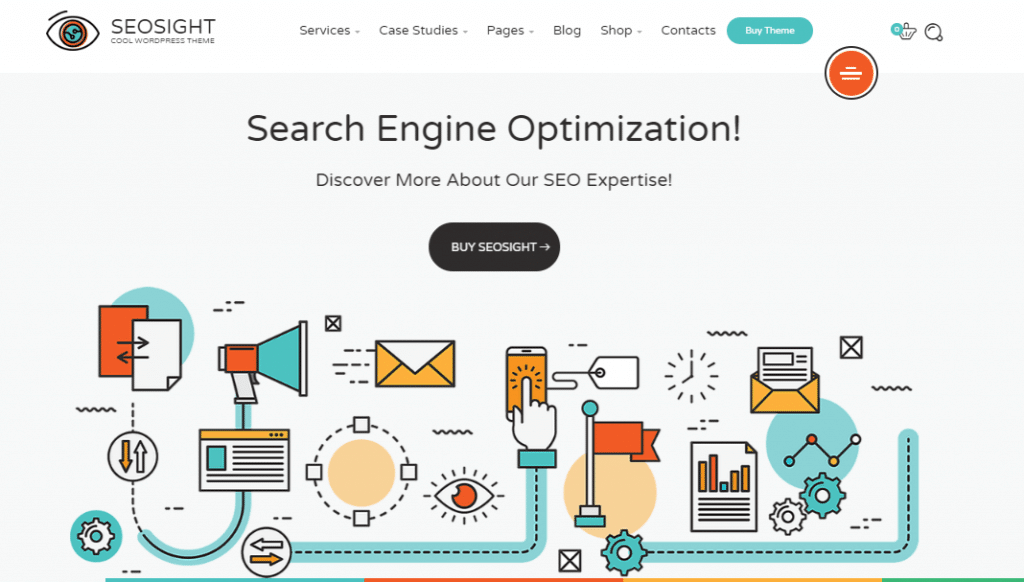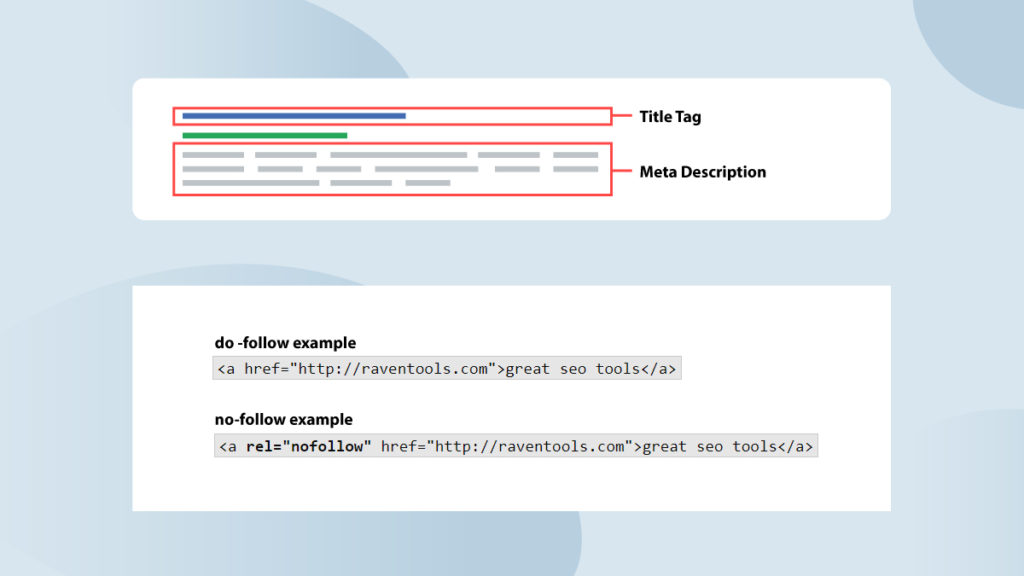The SEO industry continues to grow in demand over the past few years. With businesses in the US spending nearly $80 billion in SEO alone, you can just imagine how much more it generates globally.
This goes to show that people are relying on SEO experts more than ever. Likewise, as an SEO agency, it’s your responsibility to understand what your clients need and how to help them reach their goals.
The success of your client’s SEO campaign depends on how open your communication lines are with each other and it all starts with you asking the right questions. Take note that It’s not merely asking questions, it’s asking the important ones that will ensure you’re able to provide your clients with the services they need.
Here are the essential questions you should ask your SEO clients before working on their SEO campaigns.
1. What is your customer’s goal for the website?
This is the first question that you should ask. Having a clear goal and aligning yourself with your client’s goals will make it easier for you to specify the strategy for the website and advise them on the SEO services they need.
Knowing their business goals and their objectives for creating a website helps you select techniques that will give the type of conversion they want. For example, if you know that your client’s goal is to build community, you will focus on writing more informative blogs, creating viral social media campaigns, and encouraging discussions on the latest industry news in forums.
Make sure you ask and discuss what their key performance indicators are. This includes business and SEO metrics. Knowing these will help you create better criteria for judging your campaign’s success.
2. What are the website’s marketing goals?
Is the marketing goal to increase foot traffic? Organic ranking? Promote a specific service/offering? Partner with influencers? Increase sales? Improve content?
Knowing the answer to this question will let you zoom in on the services you need to provide them and educate your client on which key performance indicators are important to monitor the success of your campaign. You’ll know if they need you to produce better content for them or whether they need you to tighten up their on-page SEO to increase relevant traffic.
3. Have you done SEO on your website before?
It’s important to know if they have done SEO before because this lets you delve on what campaigns were run on the website, which worked and which one didn’t work. It will save you the time and effort of doing something that has already been done before. Not to mention, by knowing the reason why they switched SEO specialists, you can plan to avoid making the same mistakes and develop a better strategy.
What to do if they’ve already worked with an SEO specialist before and SEO has been done on their website? Well, tell them that it’s a good thing that they’ve already tried SEO before. This means they already have an idea of its benefits, not to mention, you can learn from that experience and use it to your advantage. Make sure you ask who controls webmaster functions on your client’s website. You will need to get webmaster access in order to optimize on-page elements.
SEO Tip:
- Ask if you can obtain previous files? This will allow you to point out what went wrong in the process. If they’ve already done SEO before, ask what keywords they already rank for, and what main keywords they would like to target.
- This is a good time to run an SEO audit using an SEO audit tool to analyze their website and see what they need to improve.
4. How familiar are you with SEO?
Whether they’ve worked with an SEO agency before or not, this is an important question to bring up. This helps gauge the knowledge of the customer and will help them explain what they are looking for.
If your clients ask ‘What is SEO?’ or ‘What does SEO really do?’, this is the time for you to be the showman and provide your clients with in-depth knowledge of your methodologies. You can show them your expertise by explaining every element of the SEO process to them or you can use the SEO Resource Center to gain access to all the SEO materials and training resources you need.
5. When was the last time you updated your website?
It’s important to know when the last time they worked on their website so that you can assess how much work needs to be done from here. Some clients spend money on their website and also do some SEO but then move to other things thinking that the work they did was enough. You have to know when they had their website built and when the last time they optimized it so you have an inkling to possible things that could have been implemented before, and also pick up from where the last update was made.
From here you can recommend whether they need a new web design and point them to outsource website development, especially if their website isn’t mobile-friendly yet or recommend updating their website security (and bug fixes).
SEO Tip: Always remind them that regularly updating and adding new content to the website will optimize its performance, increase their traffic which will eventually reflect on their return of investment.
6. Are you willing to implement On-Page optimization on your website?
Ask if they need your services when it comes to On-Page optimization. This is the time for you to explain further the value of optimizing content and updating or fixing the technical set-up of the website. You should also explain the aspect of Off-Page SEO because it’s important that they have a clear understanding of these two to avoid future confusion.
This will also let them know that these services exist, or if they are already aware, then it will remind them that they need these services.
Although rare, some clients prefer to do their own On-Page optimization. If that’s the case, ask if they are able to implement optimizations from their end and if the CMS is workable for you. Asking this question early on will let you find a solution that works for both you and your client.
7. Do you have an in-house web developer?
Because you will be working on the website’s SEO, you should ask if they already have their own in-house web developer. If they don’t, then you will have more control over making the necessary developments and adjustments on the website. However, if they do have one, you have to coordinate with them and work closely together. You have to communicate and ask what kind of support you’ll be receiving from them and how will the setup work.
8. What niche are you targeting?
Different clients target different niches, SEO works for a different range of businesses and it’s best to determine which specific market your client is aiming for. For example, if your client is a law firm in need of SEO, they should answer, people in need of a lawyer in “criminal defense” or in “estate planning” or “corporate law.”
Similarly, if you’re doing SEO for small business like a start-up clothing store, they should answer, “women’s apparel” or “women’s office wear” or “children’s apparel.”
Knowing what niche they are targeting helps focus your content and sharpen your strategy. Each market segment has a unique set of interests, and knowing these preferences helps you create content that connects with each client’s target audience more effectively. This is also extremely helpful when it comes to SEO content writing because it not only gets to target the audience but will make it easier for search engines to crawl and rank the website. By learning who your market is, you can focus your research to become a subject matter expert on their target niche. Knowing their target also helps you create a more specific set of marketing goals.
SEO Tip:
- Get their brand message. This will set the tone of your content and let you know how your client wants to be represented online.
- If you’re unsure of how to approach a specific niche, it’s best to consider working with a white label SEO agency, to maintain professional and expert services.
9. Where is your target market located (Geographical location)?
Geographical target market includes specific locales, regions, or countries, whether they are small-medium businesses or large enterprises.
Optimizing for global rankings may give your clients visibility to billions of people around the world, but if they’re only a small local business, that won’t give them relevant traffic. Asking this question lets you know whether you need to do local SEO. Focusing on a specific geographical location draws in relevant traffic and more likely conversions.
SEO Tip: Ask them what their preferred local search engine is. In our client intake form, for example, we ask which local Google website our clients prefer – US, UK, Australia, Canada, or another. Knowing the geographical location of the target market is one of the most crucial factors in strengthening your client’s SEO and eCommerce marketing strategy.
10. Who are your top three competitors?
This will let you know which websites they consider their staunchest competition. What this does is help you gauge your competition and do your research more accurately. Three is a good number to work with, but if they have more websites they see as their closest competitors, ask them to include these as well.
It’s important to ask this question to find out what your client’s competitors are doing to hold the visibility they have on the SERPs and to build their brand name online. Different niches have different competition and this will give you added information on what’s going on in a specific industry. This will also let you find your client’s strong points, giving you materials to use for the content and for your marketing plans.
Most importantly, comparing your clients with their competitors lets you benchmark their performance. This helps you monitor how much you’ve progressed throughout your campaign. With this, you’ll also gauge what methods work later on.
SEO Tip: You should also ask your client what they like about their competitors’ websites. Find out if their competitors are using a technique that your client wants to integrate into their own marketing campaign.
11. How much is the budget?
Although some people tend to be sensitive when it comes to talking about money, knowing how much your client is willing to spend on SEO is crucial to moving forward with any campaign. This is will also help them pick a package that’s perfect for them while staying within their budget.
You need to ask this question because knowing how much the client is willing to spend will make it easier for you to fit the services within the funds, in the end, it will help you write your SEO Proposal more efficiently.
In asking such questions, you have to get them comfortable with you first by asking the questions above. The conversation should let you know by now if they are willing to do business with you.
Slowly ease into why you need to know their budget.
Start with something like, “In order to have a better idea of what services we can provide you and also set the timeline, we need to know what kind of budget we can work with to complete this campaign.”
At this point, your SEO client has an idea about SEO and the services they need but if it’s their first time working with an SEO agency, this is an opportunity for you to educate them further and for you to show them how you price the proposal you’re going to serve them. Show previous campaigns and how much those cost so that your clients can see the kind of work you can provide them.
At the end of the day, it should be clear if this is an SEO client you’ll be able to work with, and by this stage, you can start drafting your SEO proposal.
12. What does this SEO campaign mean to you? What are your expectations?
Asking about what the results of the SEO campaign will look like to them and what it will mean to them will give you a picture of the success they expect. As an SEO expert, you know your capacity and capabilities, now it’s time to match that with your clients’.
Manage Expectations Before They Manage You.
Let your SEO clients know what to expect and set the timeline. Whether it’s increasing leads, increasing website rankings or increasing sales — inform them of any roadblocks that may exist, not only will you gain their trust in being truthful with them, they will also gain a sense of comfort, that you are confident enough to openly inform them about the possible challenges ahead.
SEO Tip: Don’t over commit yourself. Never promise anything that you and your team can’t deliver. You know your capabilities and the extent of what your services can deliver. Some SEO agencies tend to be a ‘yes man’, this means, just to close a client they force themselves to bite more than they can chew. This will not end well for both parties. You will over-extend yourself, while your client will get a sub-par service, which will result in them not renewing. Be upfront and honest, these are the foundations that will build a lasting relationship with your client.
Some questions to clarify expectations:
- What do you expect to get from SEO?
- What’s your ideal timeline for this SEO Campaign?
- What do you think of our services?
- Which SEO service/s are you most interested in and why?
Key Takeaways
If you want to deliver the best service to your SEO clients, you have to go ask them what they need and what their expectations are. The success of their business will depend on your ability to meet their expectations and reach their goals. Do everything you have to in order to get to know them more effectively and qualify them, whether it’s interviewing them by phone or sending them a short survey or questionnaire.
Learning how to sell SEO effectively is important in closing more clients but beyond that, the goal is to connect with them. It’s important to form the habit of openly communicating both your needs and expectations to each other to develop trust. Doing so will not only lead to a stronger bond and relationship but can lead to both your businesses to grow and evolve.








